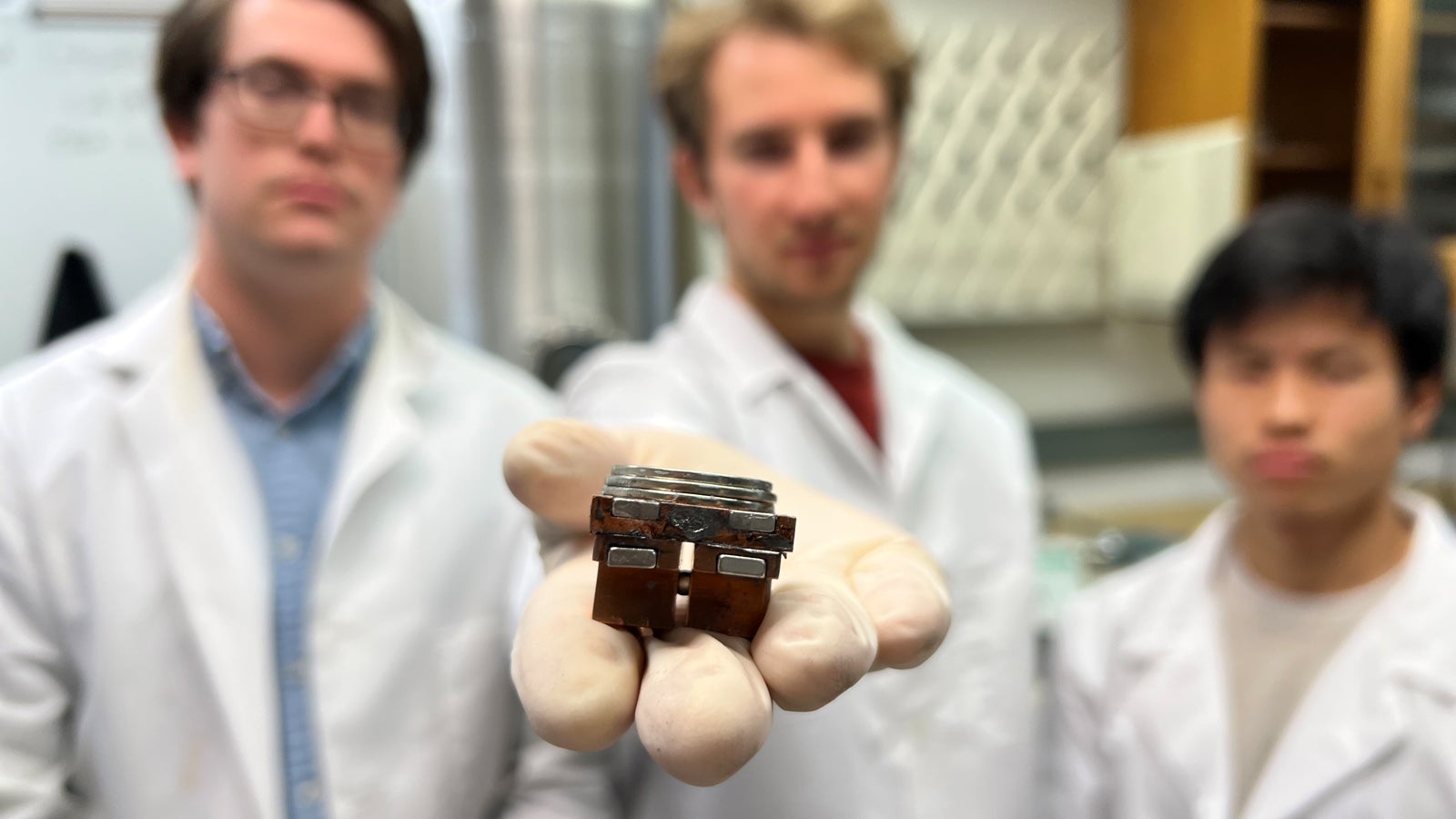The latest research in Geoff Wehmeyer’s lab hinges on a useful analogy: controlling electricity with electrical transistors is ubiquitous, so why not use them as inspiration for thermal transistors to switch and amplify heat flows?
“That analogy guides our work,” said Wehmeyer, assistant professor of mechanical engineering (MECH) at Rice University and director of the Nanoscale Heat Transfer Lab. “Thermal resistors and thermal capacitors are well-known. Our group works on building new thermal devices inspired by nonlinear electrical components – heat switches, thermal diodes, thermal regulators and now thermal transistors.”
Wehmeyer and his group have published their findings, “A three-terminal magnetic thermal transistor,” in Nature Communications.

“There have been previous theory papers that propose thermal transistor mechanisms,” Wehmeyer said, “but our work using temperature-dependent magnetic forces is the first demonstration showing the thermal transistor action.”
Wehmeyer’s co-authors are all in MECH and work in his lab. The lead author is Lorenzo Castelli, a second-year doctoral student. The others are Qing Zhu, a postdoctoral research associate, and Trevor J. Shimokusu, a fourth-year doctoral student.
“Our paper shows that at a benchtop level, we could use the thermal transistors to passively route heat in combined heat and power cycles, or build all-thermal logic gates to process information based on temperatures rather than voltages,” Wehmeyer said.
“We hope that our work inspires future researchers to think about miniaturizing the thermal transistors to create thermal microcircuits, or potentially to go in the other direction and scale up the transistors for applications in system thermal management of electronics, batteries or spacecraft.”
The research is supported by a NASA Space Technology Early Career Faculty award, a NASA Space Technology Graduate Research Opportunity and by the Welch Foundation.

